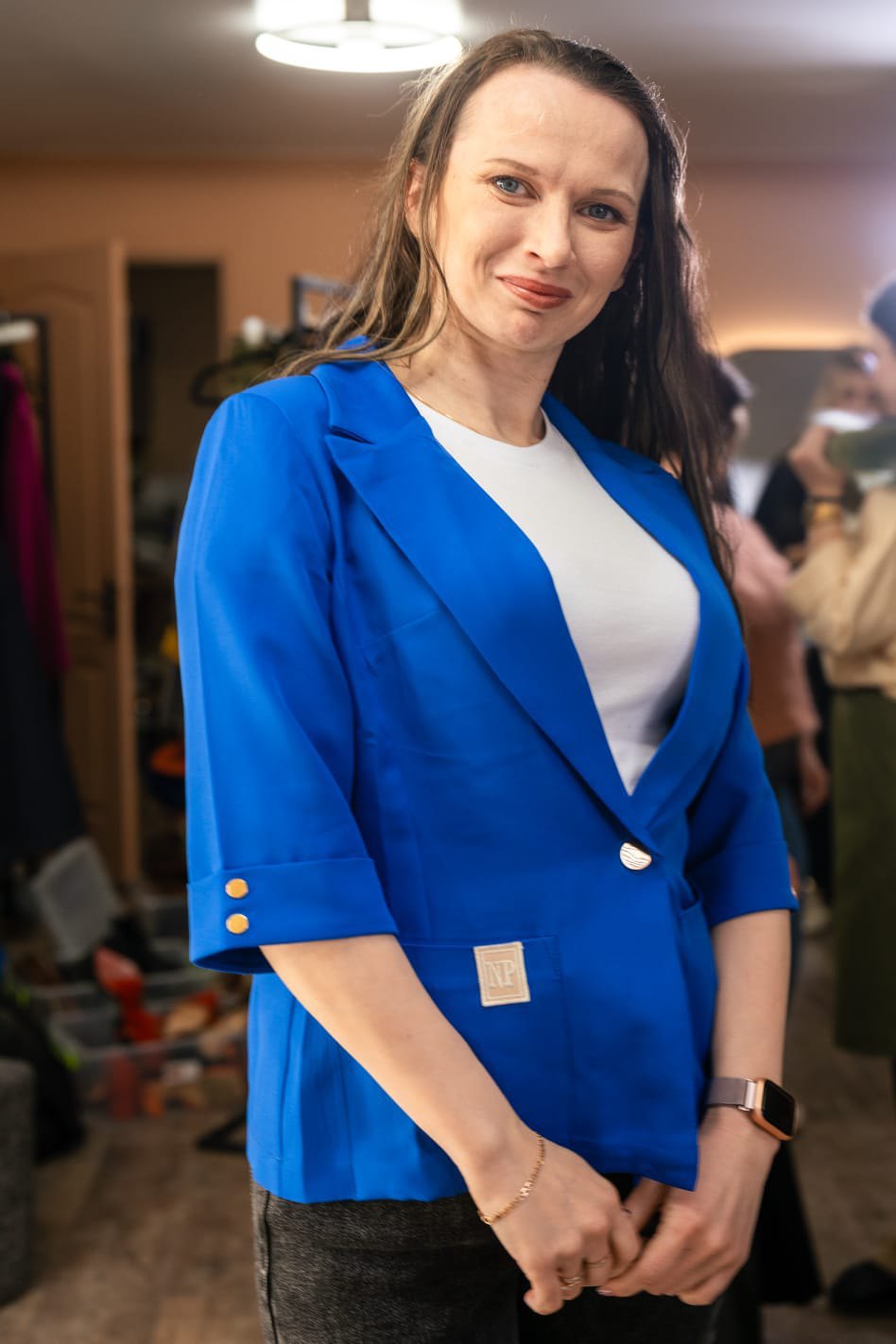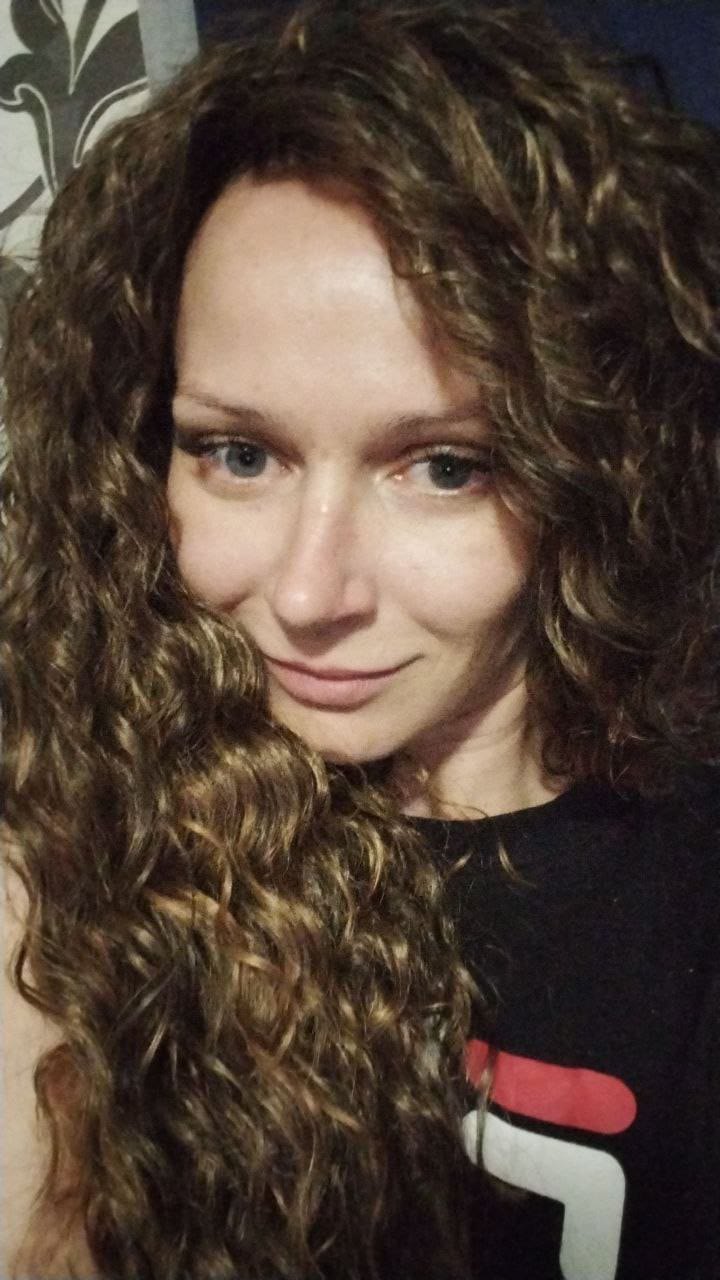
Vira Biryuk was born in Bakhmutivka, Shchastya district. The Russians ruined her peaceful life in 2014 when they illegally seized part of Luhansk Region. She had to leave the occupied Luhansk and move to Sumy Region.
Later, Vira returned to Novoaydar and stayed there until the start of the full-scale invasion.
"At that time, I did not work because my mother was ill and needed care. My daughter, who was only three years old at the time, lived with me," she recalls.
Our heroine heard the sounds of war on the morning of 24 February 2022, when the Russians shelled Shchastya and moved towards Novoaydar.
"On 26 February, we were told that we were now the territory of the so-called Luhansk People's Republic (LPR). However, no one raised their tricolour for a long time. Our flag was lowered, but theirs was not," the woman says.
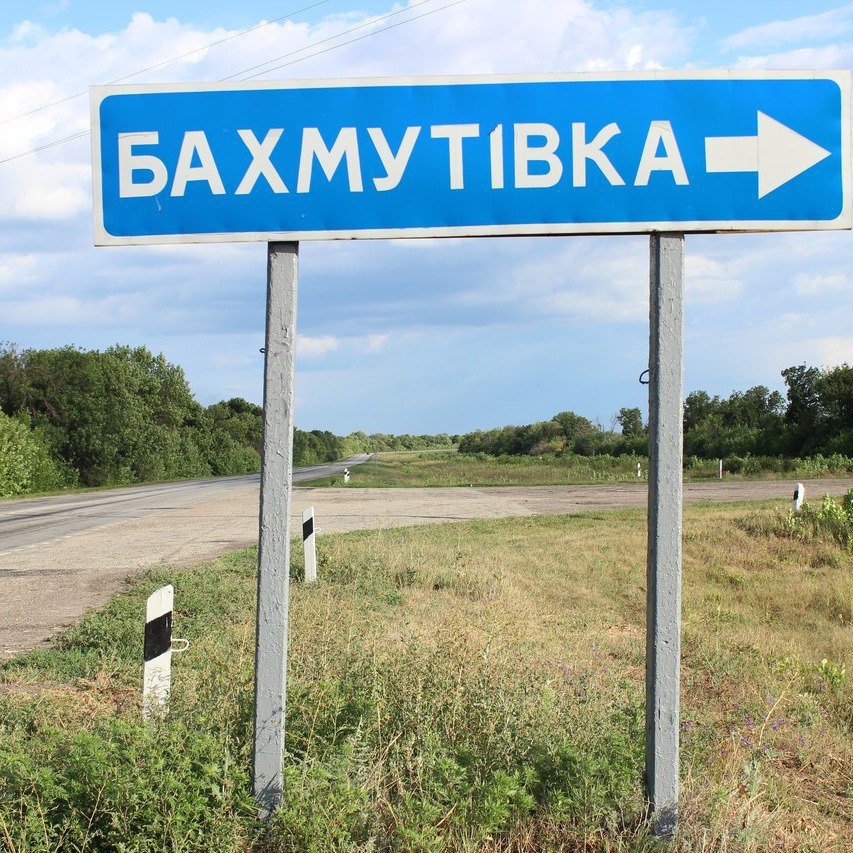
They came because of her brother, a soldier of the Armed Forces of Ukraine who died in the battles for Rubizhne
Since then, Vira Biryuk's family has been under the control of the occupation authorities. The reason was that Vira's brother served in the Armed Forces of Ukraine.
"Our district police officer came with the military. They asked about my brother: where was he when he was at home? I told them that my brother hadn't lived here for many years. They came three times, but since they found nothing in the phones or at home, we passed the filtering," the woman says.
Her brother died defending Rubizhne. In 2022, Vira saw the tragic news on Telegram channels. She shared a video in which Akhmat fighters reported to Kadyrov that they had cleared the Ukrainian position. Kadyrov's men boasted of their "victories", showing the bodies of Ukrainian soldiers and their documents. Vera's brother Ivan Bakulin was among those killed.
They wanted to electrocute her
It would seem that the death of her brother should have changed the situation of Vira's family in the occupied territory, because he was the reason people came to see them. But it didn't happen. After her mother and daughter left the TOT on the night of 3-4 September 2023, armed servicemen of the Russian Armed Forces came to her house.
"I woke up to someone lifting me out of bed. There were a lot of people in balaclavas around. I thought to myself: how many of them fit into such a small room? I look down and I see myself covered in red dots from the lights. They did not explain why they had come. The only thing they said was that I was a patriot, a spy, and worked for the SBU," Vira recalls.
They did not respond to any of her objections, but instead began to threaten her with torture.
"After that, one of them cut off the cable with a plug from a floor lamp, wound it around an office binder, put it on my ear and tried to electrocute me. I was saved by the fact that the plug did not reach the socket. Then they took me outside and put a bag over my head. The last thing I saw was white minibuses pulling up to the house," the woman says.
Forced to admit all the charges
Vira was taken to the former SBU building in Luhansk. According to her, the FSB is now there. They took her down to the basement, where she was held until 5 p.m.
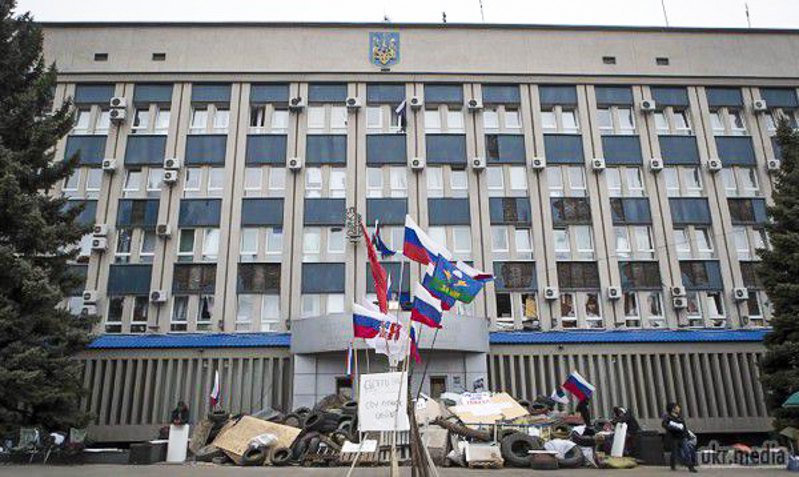
"They put me on a chair, tied my arms and legs to the chair, put terminals on my fingers and started interrogating me. The questions were about everything and nothing - how to go to Ukraine, what are the ways, who I have in Ukraine, with whom I communicate, to whom I pass information, etc.", says Vira.
After the interrogation, the Russians took DNA samples and took Vira to the investigator. According to the woman, it was impossible not to sign the charges.
"I was accused of corruption, high treason, and attempting to kill the former head of the so-called 'customs committee of the LPR' by phone. The head of the 'investigative committee' said that I had to agree to all the charges, because I would be in prison anyway, but how long was up to me. The only thing they allowed me to write was 'not guilty'," the woman said.
On the same day, 4 September 2023, at around seven in the evening, Vira Biryuk was brought to the temporary detention centre in the Leninskyy district of Luhansk. The staff of the temporary detention facility told the soldiers who brought Vira that they had already had dinner and had nothing to feed her.
"They said they could feed me tomorrow. I have not been fed since I was taken from my home. Any requests to give me water or take me to the toilet were ignored," she says.
Then Vera was taken for an examination. It was a wild nightmare for the woman. She was forced to undress completely and squat in the presence of male soldiers. "Not much can fall out of you," the soldiers commented.
Inhumane conditions in the cell and "lectures from the tsar-father"
The woman spent a whole month in solitary confinement in the detention centre. There was terrible humidity there: if you put a box of matches on the table, it will be damp in half an hour. At the same time, it stank of sewage all the time.
"I had to take a bottle and plug the hole in the toilet to keep the stench at bay. And to keep the rats out of the cell. Sometimes there was water, so when it was switched on, we had to collect it. There was no kitchen there. All the time, I was fed mashed potatoes and instant soups, which were poured with tap water," Vira said.
Every day she was taken to lectures with the head of this occupation institution. Vira says that the "tsar-father" - as his subordinates called him - explained to her why she should love the LPR and Russia.
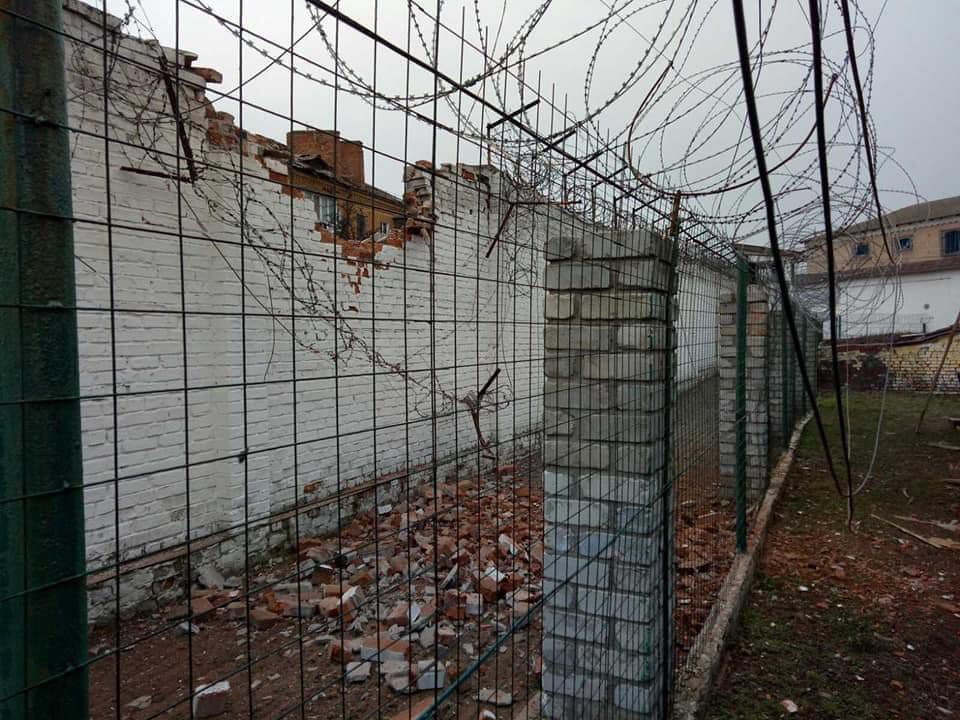
"He kept saying that Ukraine gave us nothing. He told us that their prices are higher because their living standards are higher. Can you imagine? That's the arithmetic. That is, renting an apartment in Luhansk now costs an average of 30,000 rubles, while the salary of a cashier in a supermarket is 10-15,000. What should I tell them? That they still have destroyed buildings that were damaged back in 2014? Did they preserve them so that they had something to show for it or what?" the heroine recalls.
Vira was forced to clean the building and the territory of the temporary detention facility. She had to wash and sweep the administrative rooms, corridors, detention cells, and the yard.
"I had little contact with anyone there because I was sitting alone. Most of the people were not held there for 'spying', 'adjustments' or for their pro-Ukrainian position. There were many people who were going to be tried under the Article 228 - drug trafficking. I will remember this forever. The guards used to say to me, 'at least one without withdrawal'," says Vira.
Transferred to a detention centre
A month later, Vira Biryuk was transferred to the Luhansk detention centre. She was brought from the temporary detention facility and kept in boxes until the evening.
"I was taken to a cell where five women were already being held. Among them was a girl from Svatove who was charged with espionage. An elderly woman who was given a year for spending her husband's pension on his funeral after his death and failing to return the money to the 'state'. There was also a woman from Luhansk who was in prison for drugs. And two other girls," the woman recalls.
The conditions in the cell were no different from those in the temporary detention facility. Only the bunks were on two floors.
"The toilet was also a shower. We were taken to bathe once every 25 days. Once the water was cold, the second time it was very hot. We had 15 minutes for 6 people to bathe. But I just decided not to go anymore, because in such conditions it's still impossible to bathe properly," says Vira.
The woman adds that she was not subjected to physical force in either the temporary detention facility or the detention centre. However, she recalls that one girl was poured with boiling water during interrogation because they believed that electric shock was not enough. Vira does not know what happened to her.
Two or three weeks later, she was transferred to another cell.
"They said I was a murderer, so go to the murderers. It was a shock. There were actually people in that cell who had killed multiple times. One of them was a schizophrenic woman who had killed her own child. When she had an exacerbation, she would run around the cell with boiling water and shout something. For a second week, she tortured her grandmother in the basement and then dissolved her body with acid. She was very proud of it, but she said she would not take such 'accomplices' anymore," she recalls with horror.
Moreover, this last one was a separatist.
"It was an experiment from an operative. They said, let's see if you get along. She kept kissing Putin's portrait and singing the national anthem. I did my best not to talk about these topics, not to provoke them. And I succeeded," says Vira.
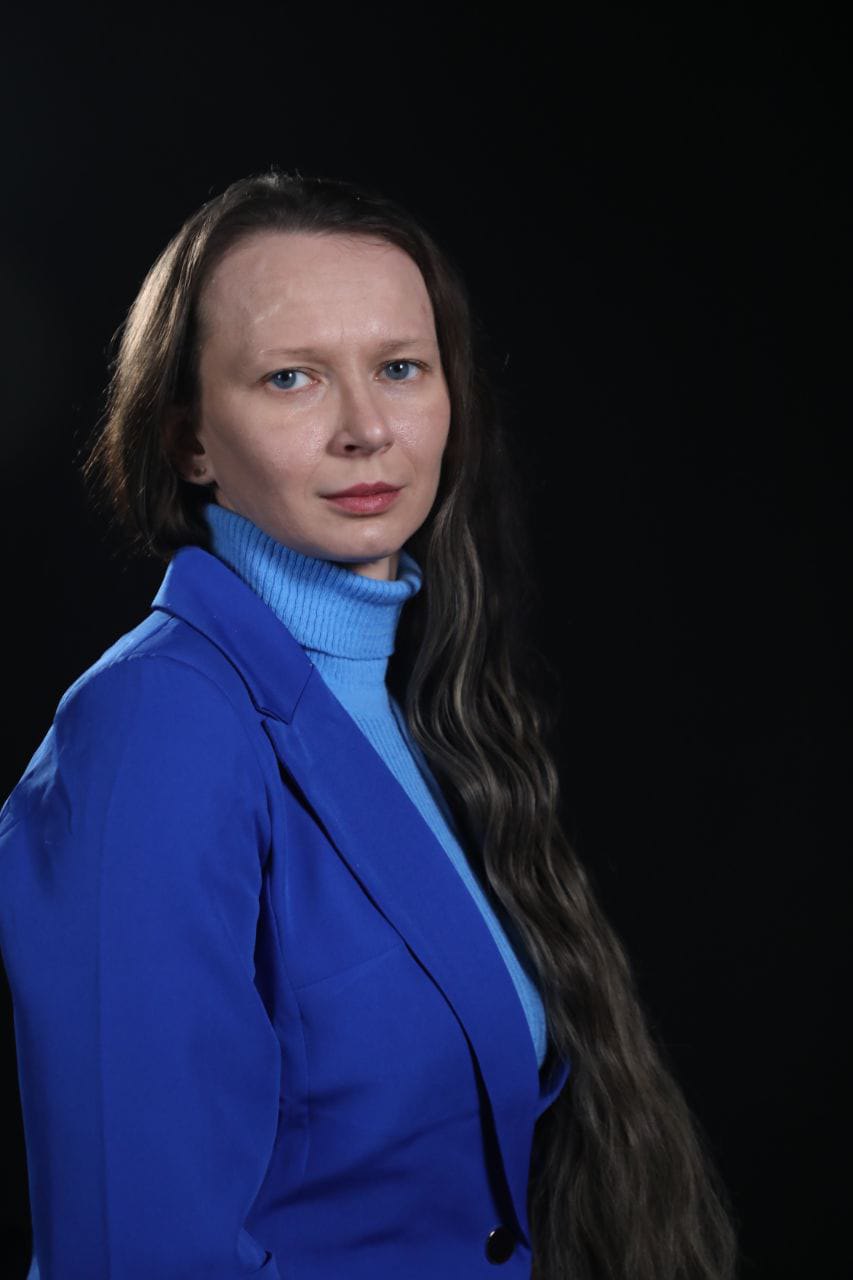
"Offers that cannot be refused"
Since Vera's case was handled by an entire criminal department, she was even given a state lawyer.
According to her, this Rostov-based lawyer refused to inform her relatives in Ukraine of her whereabouts, claiming that they were forbidden to do so. However, he did do his other work.
"He managed to remove two articles, for espionage and high treason, from my charges. Now, what is treason if I am not a citizen of the LPR or Russia? But I was, let's say, lucky. Others are not," she says.
Vera says that representatives of the 'investigative committee' and the FSB 'offered' detainees to add other articles to their charges for fictitious 'espionage' and 'adjustments' - for drugs, for example. In exchange for this, they would receive a shorter sentence or the possibility of being exchanged. In this way, they were "closing" their cases and increasing their "solvability". But in practice, it was not like that.
"One woman was promised an exchange, but now she is in Saratov. She was given 13 years. A girl from Shchastya. She was 18 years old at the time. They found pictures on her phone in support of the Ukrainian Armed Forces. She was convicted under Article 228. They said: if you do not agree, we will give you life. She agreed and was taken to Moscow. I know that she is still there and has serious health problems. She had gallstones and had the whole gallbladder removed. This is the medicine in Moscow in 2025," says Vira.
The exchange was announced on Independence Day
On 24 August 2024, representatives of the FSB made the same offer to Vira Biryuk. She recalls that she was always wondering about the date of the exchange.
"At first it was New Year's Eve, then it was Ukrainian Women's Day (25 February), 8 March, Independence Day of Ukraine. And every time I tried not to get upset. And then, on 24 August, I was summoned for interrogation. They started with the question "what holiday is today?" I said there was no holiday. But when they forced me to talk about Independence Day, I heard everything in response - that there is no such holiday, that such a country does not exist, and so on. And then they told me about the exchange, as if I had been "agreed upon by Moscow". But in return, I had to admit guilt," the woman says.
At the time, Vira and her appointed lawyer were preparing an appeal against the 'court decision'. However, the FSB told her that if she filed an appeal, she would not be exchanged. As the deadline for filing an appeal was approaching, but Vera would still have one more day to file it if she was deceived, she decided to take the risk and "plead guilty".
"On 9 September, I was told that I was going for an exchange. I started packing. You know, it felt as if time had stopped, because those last days and hours of my stay there were so long. One of the separatists told me to "kiss Uncle Vova" - a photo of Putin. I said that of course I would. And I continued to get ready. She came to me again: "Vera, you promised to kiss me". And as I was leaving, I told them that I would kiss Volodymyr Oleksandrovych [Zelenskyy], because we have our own 'Vova'," Vera recalls with a smile.
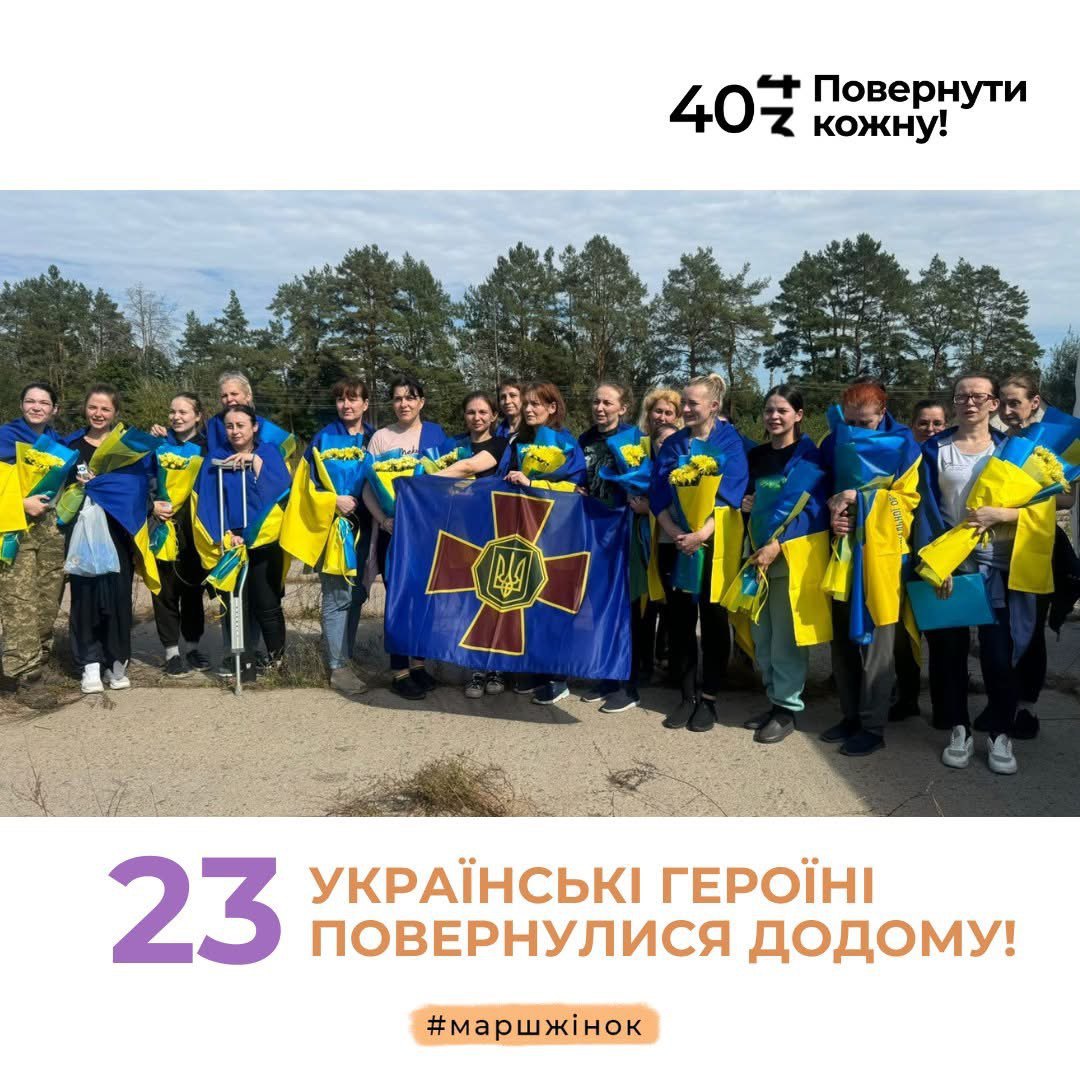
At home
On 13 September 2024, Vira returned home with 22 other Ukrainian women. The woman underwent rehabilitation and treatment and joined the NGO 'Let's go, sisters'. There, she is involved in collecting and disseminating information about other female civilian prisoners of war who are waiting for exchange.
"I keep in touch with the girls who are still in Russian captivity. They are being held there, and we are fighting for them here together with our sisters," Vira said.
